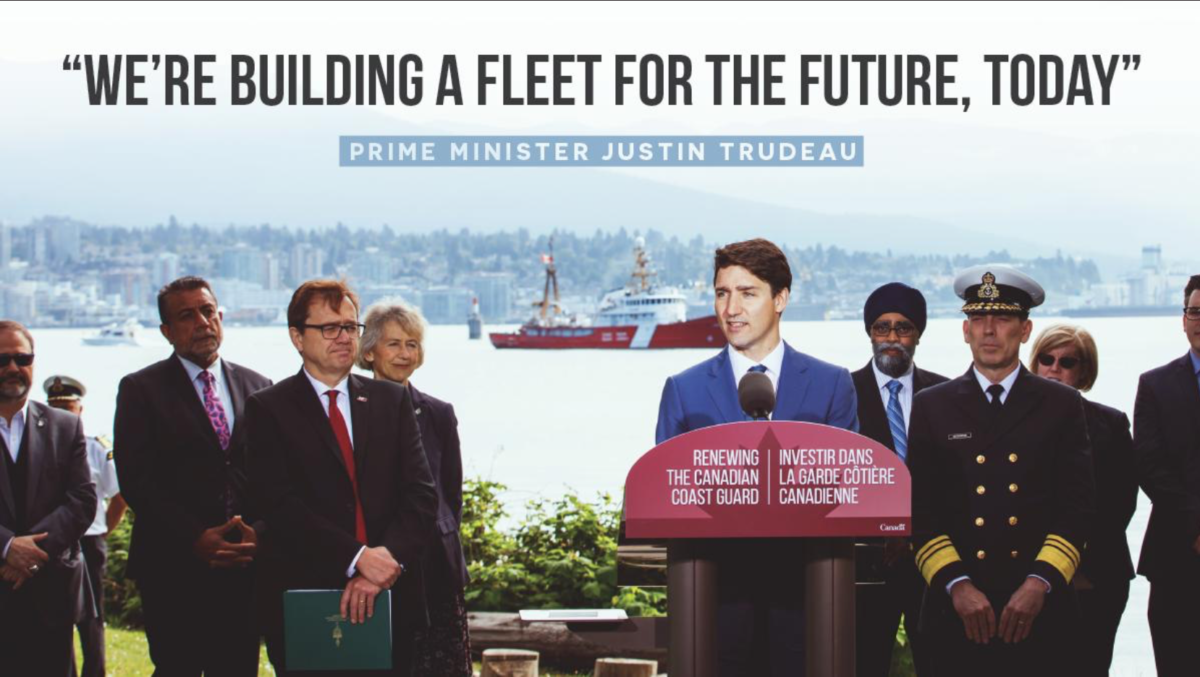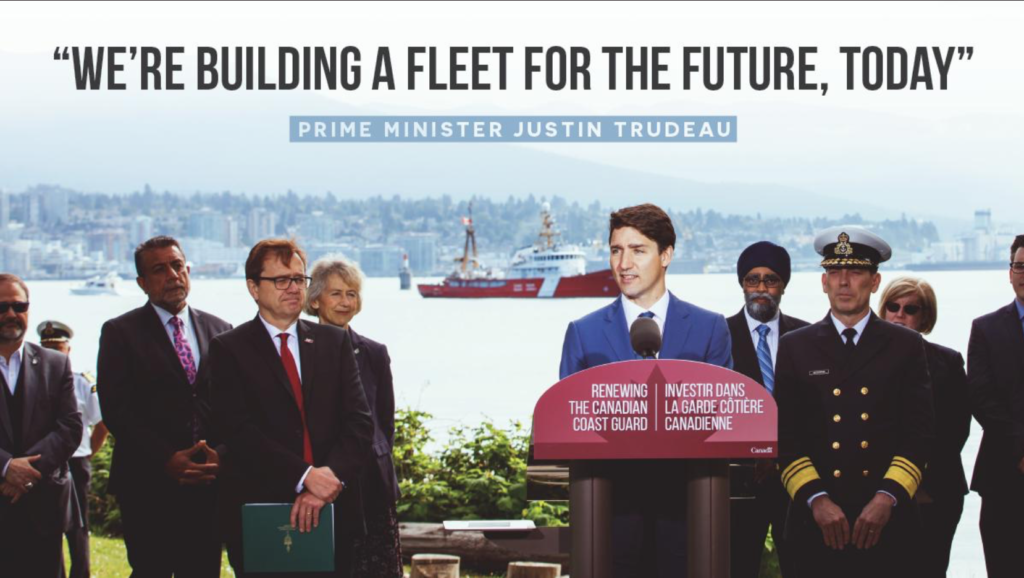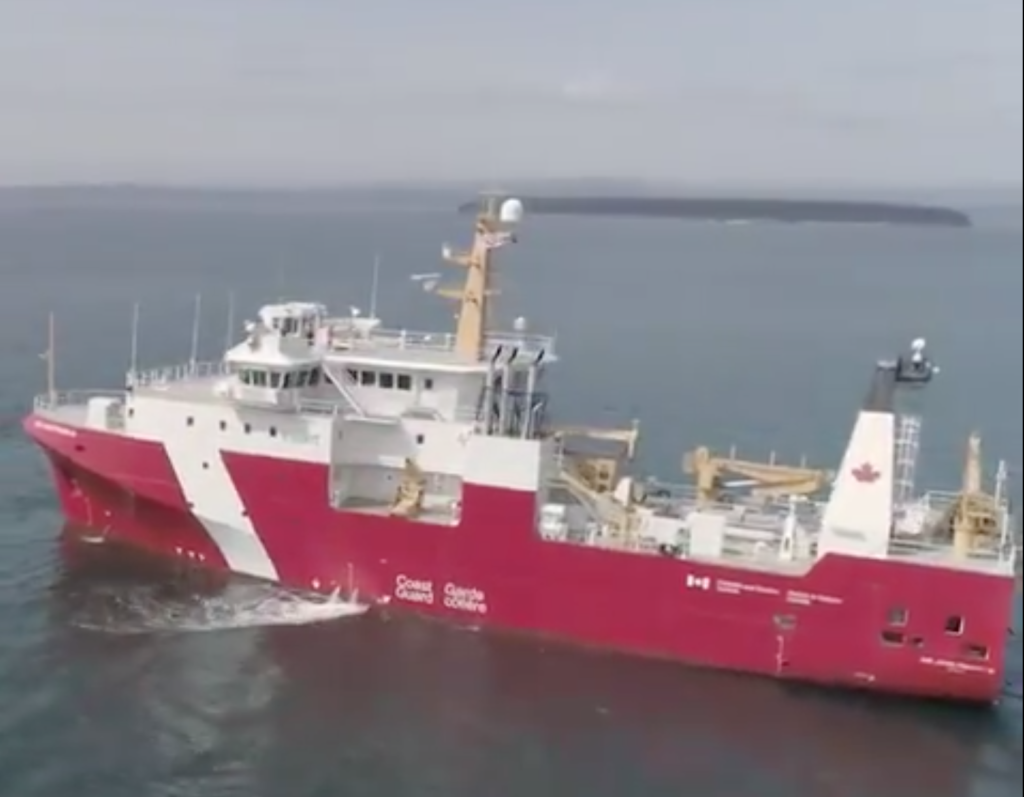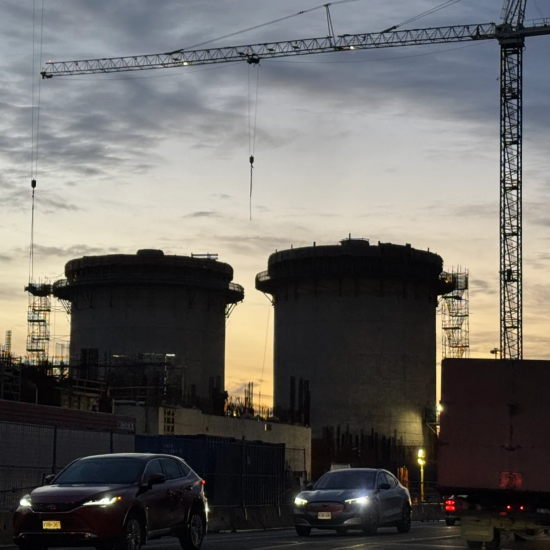
Bob Mackin
When will the big ships come? They’re costing a mighty sum. The auditor general report is done, it reads like a tale of woe.
Federal Auditor General Karen Hogan said Feb. 25 that the shipbuilding contract with Vancouver Shipyards Co. is treading water because of the “sustainability of shipbuilding operations” at the North Vancouver company.

PM’s May 22, 2019 announcement in Vancouver (Twitter)
“As a result of a firm-price contract combined with underestimating the time and effort to build the offshore fisheries science vessels, the shipbuilder had sustained significant financial losses,” said Horgan’s report. “This not only threatened the strategy’s overall objective of creating a sustainable marine industry, but also put the renewal of the federal fleet in peril.”
The government entered umbrella agreements in 2012 with Vancouver Shipyards for non-combat vessels and Irving Shipbuilding of Halifax for combat vessels. In December 2019, after a competitive process, the government chose Chantier Davie Canada Inc. of Levis, Quebec to build six icebreakers.
The cost of the program, formally known as the National Shipbuilding Strategy, has ballooned over the years, from $14 billion to $70 billion. Four Coast Guard ships and two Royal Canadian Navy joint support ships were assigned to Vancouver Shipyards, part of American billionaire Dennis Washington’s empire.

The Seaspan-built John Franklin (Seaspan)
Two of four Coast Guard ships were delivered in 2019, eight and 10 months late, respectively. Another that was originally scheduled for July 2019 was 13 months late. A fourth, expected later this year, is now scheduled for April 2024. It is under detailed design and the build contract has yet to be awarded.
The navy vessels, for 2023 and 2025 delivery, are under detailed design and the hull components are under construction.
Before the 2019 federal election, Vancouver Shipyards was assigned another 16 multipurpose vessels for delivery between 2027 and 2042.
The auditor general’s report said the government and shipyard agreed to change the order in which the joint support ships and offshore oceanographic science vessel would be built. In 2019, Public Services and Procurement Canada began looking for a third shipyard to build the icebreakers, after initially assuming Irving and Vancouver could stay on time.
“Overall, we found that during the audit period, the National Shipbuilding Strategy was slow to deliver the combat and non-combat ships that Canada needs to meet its domestic and international obligations,” said the report.
“The delivery of many ships was significantly delayed, and further delays could result in several vessels being retired before new vessels are operational. National Defence and the Canadian Coast Guard have implemented measures to maintain their operational capabilities until new ships are delivered, but interim capabilities are limited and cannot be extended indefinitely.”
Support theBreaker.news for as low as $2 a month on Patreon. Find out how. Click here.











